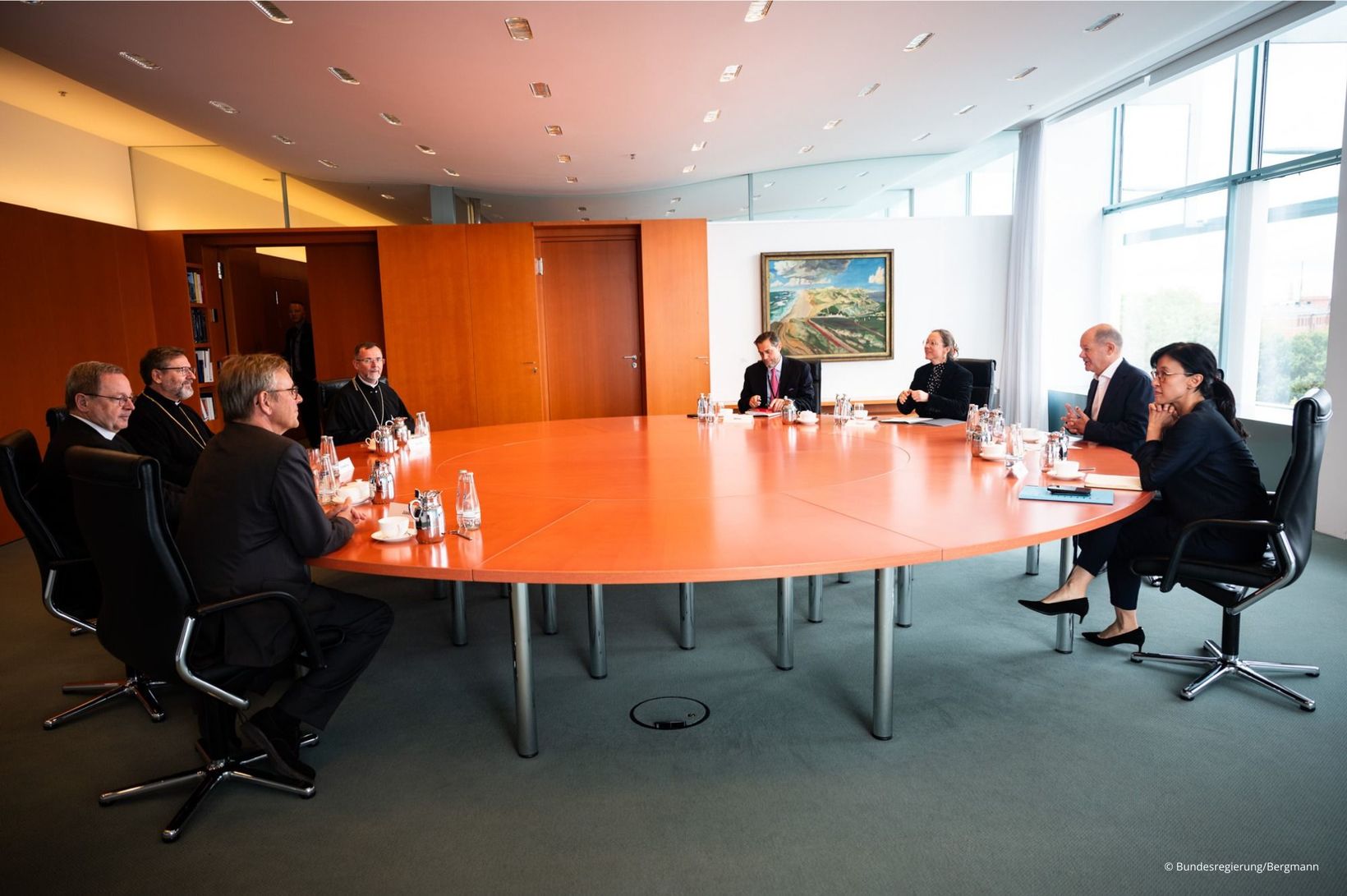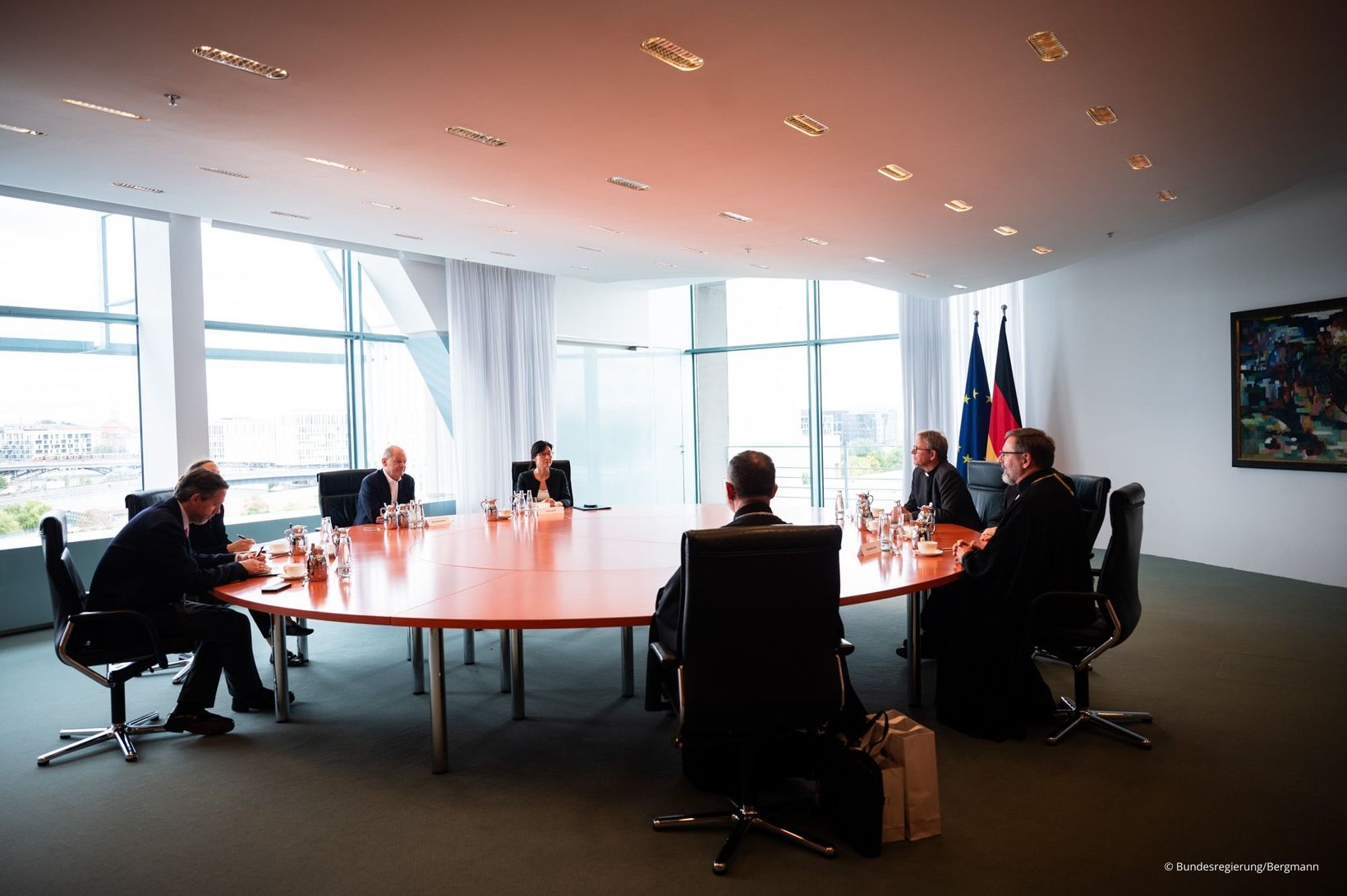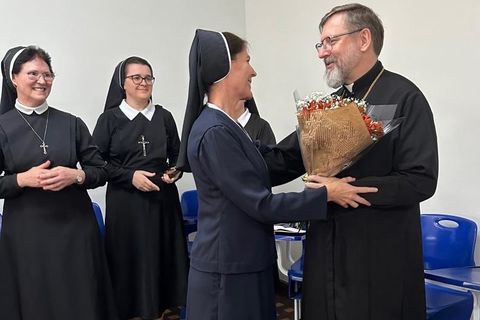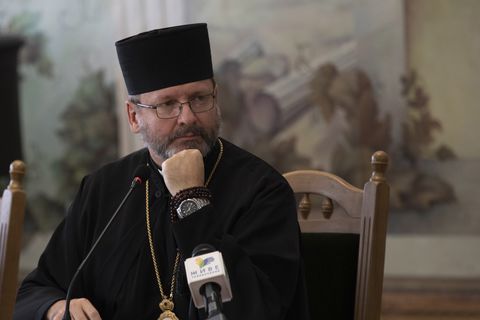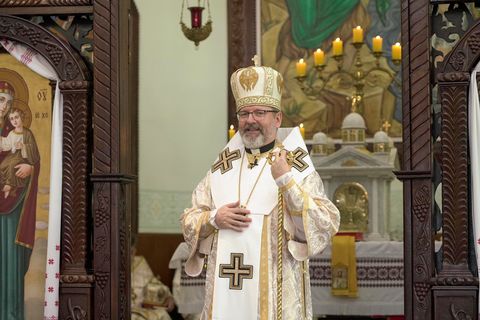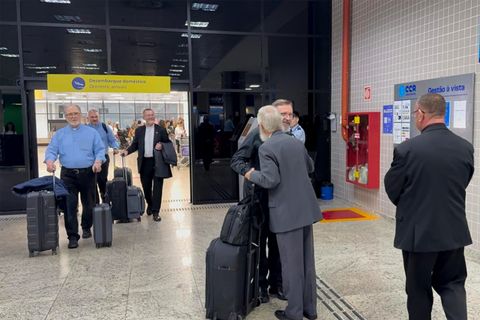UGCC Head His Beatitude Sviatoslav Meets with German Chancellor Olaf Scholz
On September 11, 2024, His Beatitude Sviatoslav, the Father and Head of the Ukrainian Greek Catholic Church, met with German Chancellor Olaf Scholz in the office of the head of the federal government in Berlin.
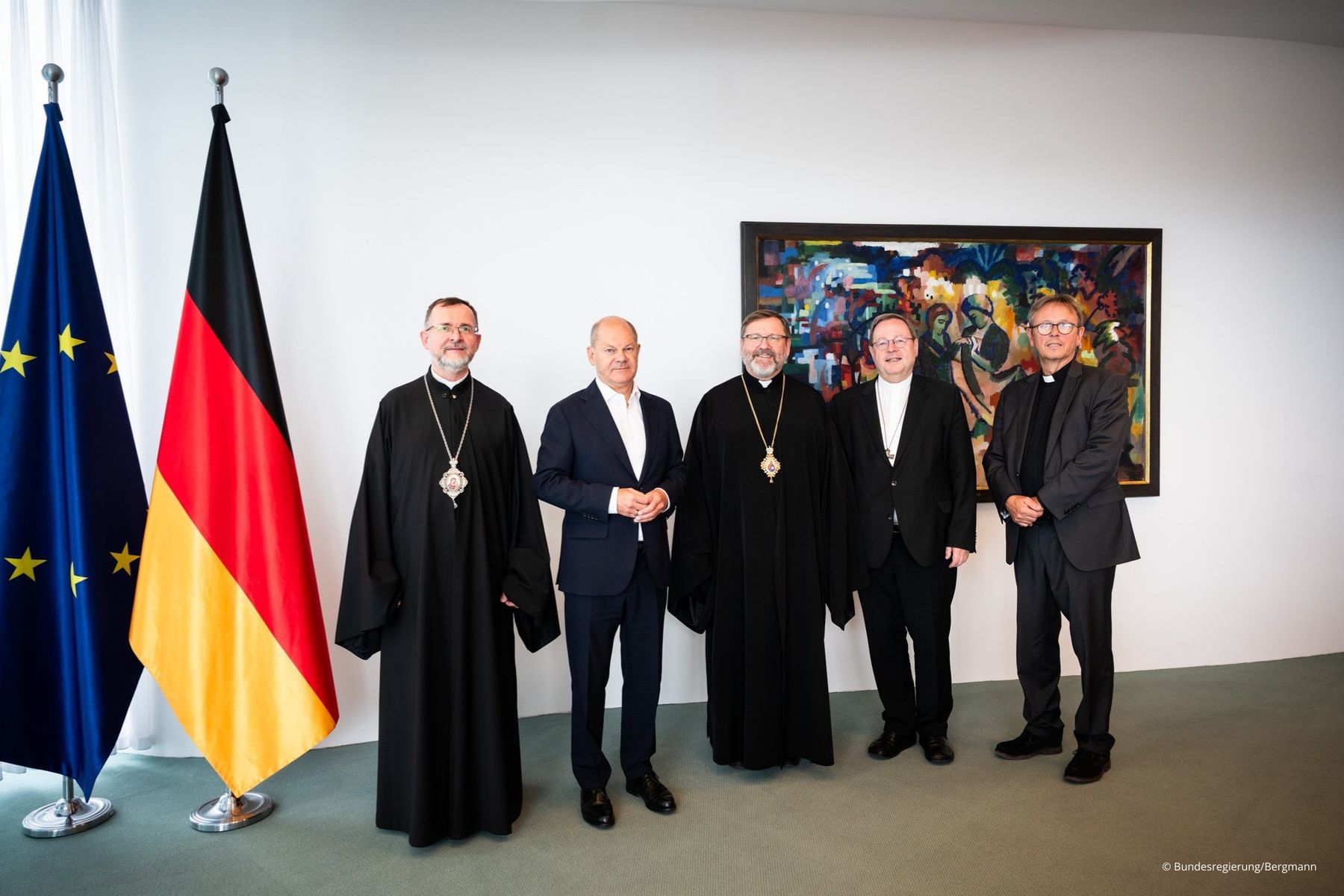
The meeting was also attended by Bishop Bohdan Dzyurakh, Apostolic Exarch for Ukrainians in Germany and Scandinavia, Bishop Georg Bätzing, Chairman of the German Bishops’ Conference, and Prelate Dr. Karl Justen, Head of the Catholic Commissariat in Berlin.
During the meeting, the Head of the UGCC expressed his sincere gratitude to the German Chancellor for the comprehensive assistance that the Ukrainian people received from the German government and people during Russia’s full-scale war against Ukraine. His Beatitude Sviatoslav also commended Germany’s support in hosting over 1.2 million Ukrainian refugees and providing them with essential social protection.
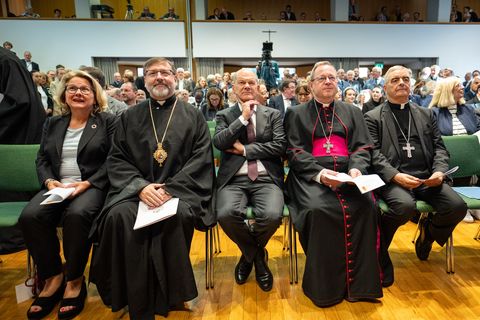 Read also:
Read also:
Head of the UGCC in Berlin: The War Against Ukraine is a War Against Germany, All of Europe, and the Entire Democratic Order
The Head of the UGCC described to Mr. Scholz the role of churches and religious organizations in providing spiritual support to Ukrainians during the war, both in Ukraine and abroad. The Primate emphasized that the Churches are an integral part of the Ukrainian civil society and its voice in Germany “represents ordinary Ukrainians, whose voices have been robbed.” His Beatitude Sviatoslav noted that he feels it is his duty to convey to the Chancellor the pains, sufferings and hopes of the Ukrainian people, and also to “debunk the myths about Ukraine spread by Moscow propaganda, which cause fear in the hearts of the leaders of the German state and interfere with their ability to do even more for Ukraine.”
For his part, Federal Chancellor Olaf Scholz assured of further support and assistance to Ukraine. “We will help as long as necessary,” he said. At the same time, the Head of the Federal Government pointed out certain difficulties related to internal political processes in Germany, noting that there are voices in the country that do not share the position of the government coalition regarding assistance to Ukraine. However, the Chancellor emphasized that the government will not be deterred by these critical voices, as “Ukrainians are defending democracy and the free world from the totalitarian Russian regime.”
The church and state leaders also discussed the integration of Ukrainians into German society, specifically their employment. The German Chancellor noted that Ukrainians who are already working reduce the workload on the state budget and contribute to the improvement of the German economy. The parties agreed that conditions should be created to facilitate the employment of Ukrainians. The active participation of Ukrainians in the economic development of Germany will be an additional reason to increase German aid to Ukraine.
In addition, the parties discussed matters of church-state relations in Ukraine, including the security of churches and religious organizations from possible dangers of instrumentalization and militarization by the aggressor state.
The UGCC Department for Information
photo by the press office of the Federal Chancellor of Germany
